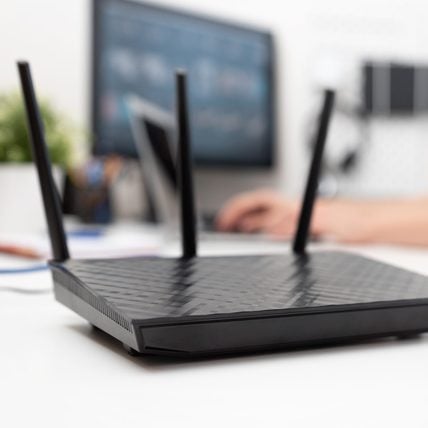Is Renting a Router and Modem From Your Internet Company a Bad Idea?
Renting equipment from your internet company is easy and convenient, but buying your own could save you money over time.
Most internet service providers provide the option of renting a modem and a router (or a combination of the two) to their customers for a low monthly fee. Renting equipment from your internet company is convenient and simple, but is it a good idea? Here’s a breakdown of the pros and cons, as well as some insight from tech industry experts on whether it’s worth doing.
Confused about the difference between a router and a modem? Here’s a quick rundown.
On This Page
Why You Should Rent
For a lot of people, home internet is a matter of convenience. For anyone in that camp, renting equipment from their ISP is likely a good decision because it removes potential headaches.
“Renting a modem allows you to avoid troubleshooting issues yourself, since your ISP can help you more with tech support,” said Carla Diaz, cofounder of Broadband Search. “It also makes your life a little easier, as you won’t need to research which modem you actually need to get.”
If all you want is painless WiFi and you’re OK with equipment a few years behind the most current tech, renting your router and modem is not a bad decision. It’s also worth noting that if a rented router/modem breaks down, ISP’s usually replace them for free. That’s not the way it works with tech gear you buy yourself, unless you spring for an expensive protection plan.
Why You Should Buy
While renting a router is a good idea for some, for others it just doesn’t make sense. Here are a few reasons why you shouldn’t rent equipment from your ISP.
Save Money in the Long Run
Even if your rental costs around $12 to $15 a month, that quickly adds up. It’s hard to justify spending up to $180 a year on a rental when you can buy quality equipment outright for the same price or cheaper.
Here’s what Shayne Sherman of TechLoris.com had to say about why renting equipment from your ISP doesn’t add up:
“Using a modem and/or router provided by your ISP is like ordering a couch from Rent-A-Center. Sure, you get a couch for $40/week, which is a lot more affordable than buying a new sofa. But you pay $40/week for so long that you end up paying three times what the couch is worth by the time it’s paid off.“The only difference between lease-to-own businesses and leasing your modem/router is that the couch you lease-to-own will eventually be yours. You’ll never stop paying for the modem you lease from your ISP.”
The Ability to Upgrade
Buying your internet equipment also increases the options available to you. Though it takes a willingness to learn how home WiFi networks work, researching and purchasing the best gear for your home could mean the difference between sluggish streaming speeds and a blazing fast connection. And renting often gives you less for your money.
“The routers you typically get from your ISP are also used and most likely use outdated technology,” said Sherman. “The ISPs know that the vast majority of people do not need the incredibly high speeds that they talk you into getting. So if your modem or router won’t actually deliver a strong network, most people won’t notice.”
Things to Consider Before Buying
If you’ve decided you’re better off buying than renting, here are a few more things to consider before making a purchase.
Check for Compatibility
Be sure anything you buy actually works with your ISP. Many major internet companies compile a comprehensive online list of compatible equipment, so check your ISP’s website or call them before spending a chunk of change on a router or a modem.
Keep Your Needs in Mind
It might be tempting to go all-in on the latest and greatest technology. But the truth is, your home WiFI network might not need all that firepower. High-end equipment can support internet speeds of more than 1GBs (that’s a lot). But speeds that fast aren’t available in many areas and aren’t necessary for the average internet user. Try to find gear that maximizes your network without breaking the bank. Switching from renting to buying should save you money, after all. There’s no need to buy expensive tech to support networks far beyond your capacity.



